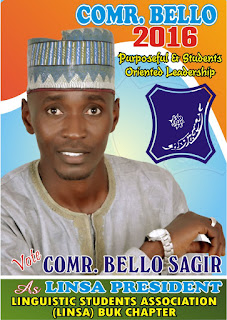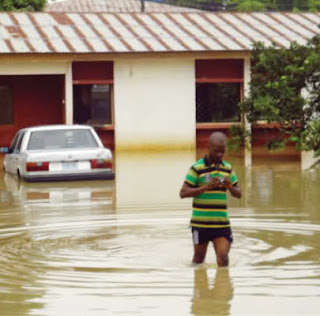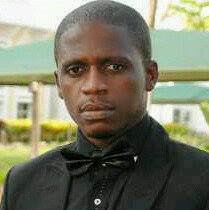This time, the blog: 'Learning Never Ends (LNE)' has a big guest in person of Prof. Abdalla Uba Adamu. Prof. holds double professorships in Science Education in 1997 and Media and Cultural Communication in 2012 at a time (and still) when the later is not popular among African scholars, from Bayero University Kano, Nigeria. He attended 32 academic conferences across the glove and wrote 85 academic research papers. At BUK, to be a Professor, a PhD holder is required to write 15 academic research papers to qualify. Professor Adamu is a visiting Professor in many universities in the world. He is currently the Vice Chancellor (VC) of National Open University of Nigeria (NOUN). He invented a computer software that provided the six Hausa hooked characters: (Ɗ, ƙ, ɗ, ɓ, Ƙ, and Ɓ) as font sets to facilitate Hausa word processing in 1996. Beside being an academic, he produced a film entitled: 'Equestrian Elegance' reviewed by Carmen McCain which is downloadable free of charge on Youtube.
In this exclusive interview with Bello Sagir, the scholar unveiled many things, for instance, when, where and how does reading culture start. The book that is dangerous to be read. The book that is a must read by all human beings. The recommended pages to be read daily. The childhood book he returns to again and again. What makes him buy a book at the bookshop. The book he did not finish and his advice to the blogger. Also in the interview, the dual Prof. made comparism between the reading culture in developed countries and in Africa and how it can be used to restore peace and political normalcy in the continent, and what not.
Enjoy:
LNE: What's reading culture?
PROF: The desire to read any literature being motivated by yearning to learn. Reading because you have to pass examinations cannot be properly 'reading culture' because often the reading stops after the examinations have been completed. For proper reading culture, one needs to constantly engage in literary materials in any form, deriving pleasure from such activity.
LNE: When, where and how does it start?
PROF: Home is the best starting point, with parents. When a child grows up in a home full of books and sees his own parents reading, he will also want to read. Religious texts like the Holy Qur'an and the Hadith are all available everywhere. Reading them is the starting point for inculcation of reading culture.
LNE: What are the types of reading?
PROF: Reading is reading, so there is no categorization in the process. However, there are different types of reading materials and motives for reading. Perhaps the dominant reading category for many people is one geared towards passing set examinations. This will be in the form of textbooks and other technical journals. Religious texts such as the Qur'an and the Bible also provide a category of reading materials which are read for spiritual fulfillment. Then there are secular materials, such as magazines, newspapers, fiction, which are read for pleasure and learning.
LNE: What are the impediments to reading?
PROF: If the culture of reading has not been established early enough in a person, this would constitute a primary impediment. Secondly, lack of the materials to read can also constitute a problem. But I said, almost every home has a religious text in the form of the Qur'an or the Bible, and therefore there are reading materials at home. In this era of Smartphones and cheap data availability in Nigeria, most people have access to a massive variety of reading materials through the Internet. The issue, therefore, of impediment is no longer physical, but psychological.
LNE: What are the advantages of reading?
PROF: It provides incidental education - that is education not specifically aimed at achieving a particular target. It makes a person more objective, for they are aware of the world and how different and similar it is to their own perceptions of life. It therefore makes a person more tolerant of other people's opinions and perspectives. It instills respect; for the lack of respect is often fueled by ignorance of other people, which is caused by inability to read about the other people.
LNE: What of diasvantages, if any?
PROF: Ignorance, for one. People who don't read tend to be ignorant of everything. Even religion; for religious ignorance is caused by inability to read religious texts and know what the religion actually enjoins you to do. Lack of perspective on the world is another disadvantage, because a person who does not read will not appreciate other cultures since they won't know much about them - only what they are told.
LNE: Is there a book that is dangerouse to be read? If yes, which is it?
PROF: It is not the book that is dangerous. It is the reader.
LNE: Is there a book that is a must read by all human beings? If yes, which is it?
PROF: Every book is important to all human beings, for it summarizes human knowledge. I would put the Holy Qur'an and the Holy Bible as the primary most important books to be read by humanity, for these are the sum total of human experience and existence.
LNE: How is reading culture in other parts of the world?
PROF: Literature cultures that promote publishing and freedom of expression
LNE: How is the reading culture in comparism to that of Africa?
PROF: It is better and more developed in other parts of the world than Africa because the opportunities for literacy in these other communities are higher.
LNE: What role does poor reading culture plays in making Africa lags behind and how can it be used to restore peace and political normalcy in the continent?
PROF: Encourage more reading among younger elements
LNE: Sir Abubakar Tabawa Balewa, being a full time politician by then, was reported to have read the whole collections in a certain public library, how's reading culture among Nigerian contemporary politicians?
PROF: I don't know. You have to ask them yourself since I can't speak for them or on their behalf.
LNE: Some Nigerians attribute their poor or no reading culture to lack of time, does the assertion hold water?
PROF: I am not sure where they get their information, so I can't speak for them.
LNE: How's reading culture among Nigerian youths?
PROF: This has to be measured empirically in a research
LNE: What are the recommended pages to be read daily?
PROF: The Holy Qur'an and the Holy Bible.
LNE: How can you describe the loss a non-reading cultured person make?
PROF: Breeds ignorance
LNE: What are the steps for inculcating reading culture?
PROF: Encourage people to read from youth.
LNE: If we imagine that reading never existed, how could life have being?
PROF: Reading always existed. Long before books and paper, people were reading signs to understand nature.
LNE: What are the ways to revive reading culture?
PROF: Encourage more reading among youth through reading clubs
LNE: How can you describe your passion for reading/books?
PROF: Great
LNE: What childhood book do you return to again and again?
PROF: Treasure Island
LNE: What is the last book you read?
PROF: No Man's Land by David Baldacci
LNE: What are you currently reading?
PROF: Night School by Lee Child
LNE: Who is the most effective author that influenced you to became who you are?
PROF: Ayn Rand, author of The Fountainhead
LNE: What makes you buy a book at the bookshop?
PROF: The author and the title
LNE: What was the last book you bought?
PROF: Night School by Lee Child
LNE: What book did you not finish?
PROF: The Lord of the Rings by J.R. Tolkien
LNE: What are your favourite books?
PROF: All the novels of Robert Ludlum, Lee Child, Ayn Rand.
LNE: Two bonus books after the above?
PROF: None
LNE: What time of the day do you prefer for reading?
PROF: Before lights out
LNE: What is the book that makes you a writer?
PROF: I am a researcher, not fiction writer, so there is no specific book that ignited the process.
LNE: What is your comment about the blog: 'Learning Never Ends' which is on www.bellosagir.blogspot.com?'
PROF: Never even heard about it.
LNE: What's your advice to the blogger?
PROF: Keep it up.
LNE: What's your advice to other reading public about the blog?
PROF: Patronize.
Thank you very much for squeezing in this interview, sir.
(C) Learning Never Ends, 2016.









